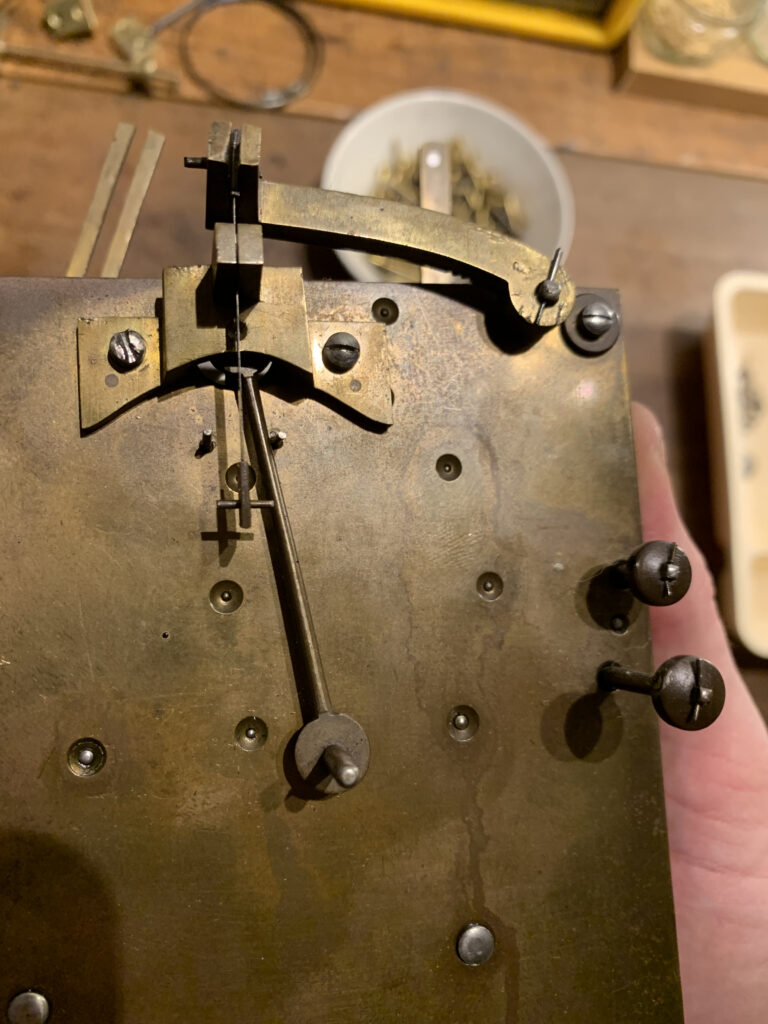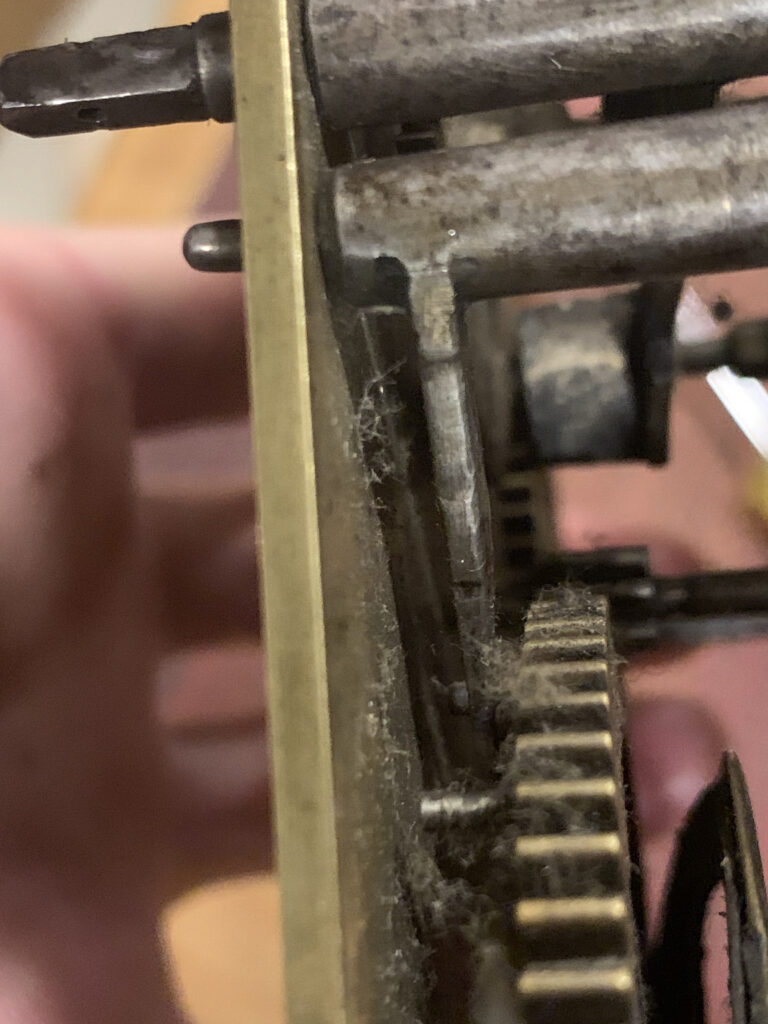Sometimes people hope to avoid repairs by drenching their clock in oil – especially WD40 – but this causes serious damage. Clocks are designed to run without being oiled. Parts are made from brass and steel, and when polished correctly there is almost no friction. A tiny needle-tip of oil is put into the pivot reservoirs when the clock is perfectly clean, and that’s it.
So what’s the problem with oiling?
Oils contain solvents as well as attracting dust from the air. This very quickly forms a black, abrasive paste which grinds the brass parts as the clock turns.
Please, please do not be tempted to spray oil into your clock. A properly serviced clock will run for many years, but oiling a clock to get it going again will make repairs more difficult, and any brief period of successful running will soon end when the oil gums up the parts again.
If you’re buying a second-hand clock: be careful to look for traces of fresh oil as your new purchase may soon become a problem if the owner has recently oiled it to get it ready to dispose of in a ‘working’ state.

